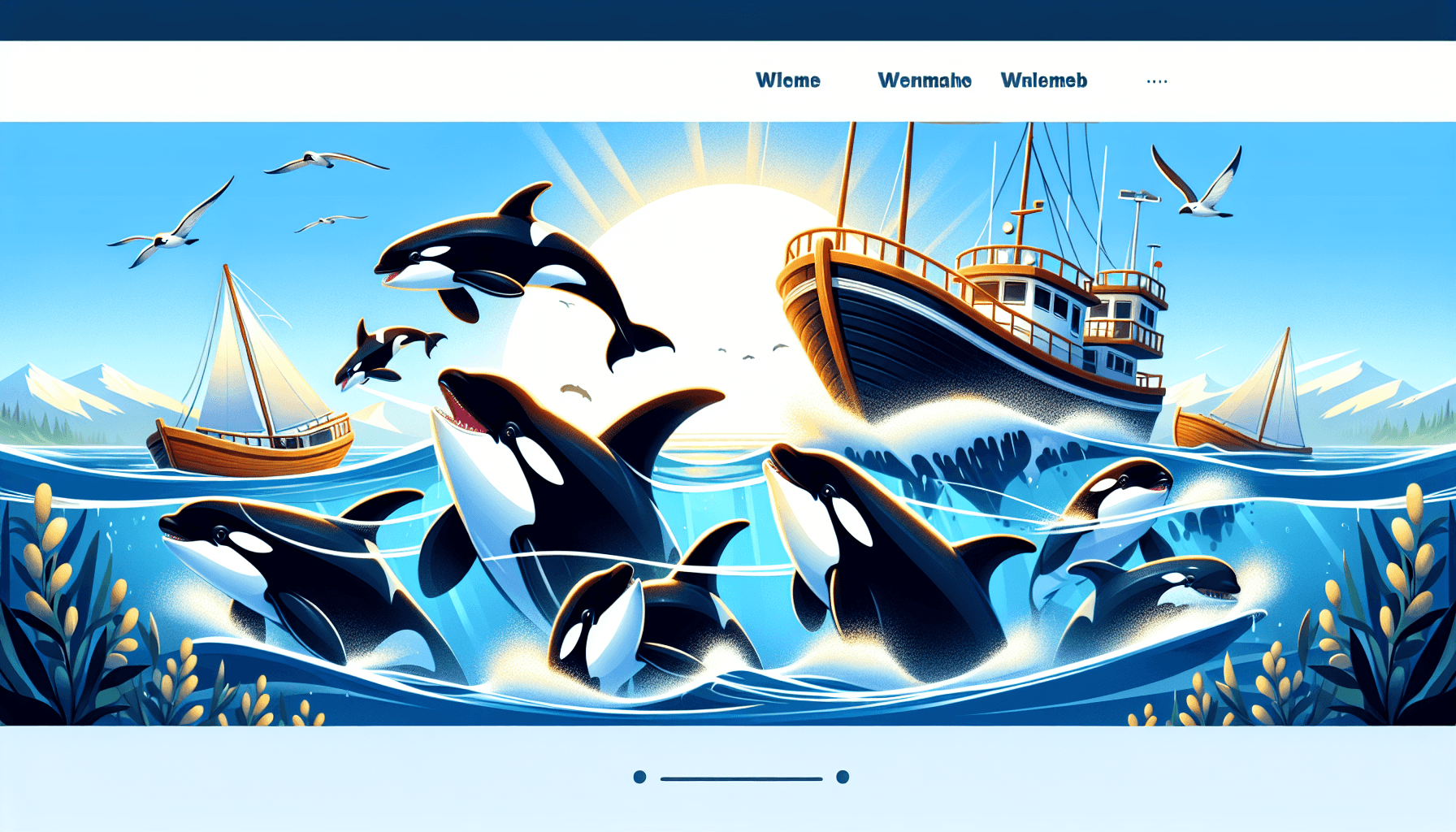Today in Edworking News, we want to talk about orcas still smashing up boats – and we've finally worked out why.
For four years now, orcas have been ramming and sinking luxury yachts in European waters, and scientists have struggled to work out just why these smart, social animals had learnt this destructive new trick. But, sadly, it's not their anticapitalist 'eat the rich' agenda, nor is it to do with territory and aggression. The truth is, well, it's child's play.
Following years of research, a team of biologists, government officials, and marine industry representatives have released their findings on just why one particular Orcinus orca group has developed this destructive streak. And it turns out orcas – especially the kids and teens – just want to have fun. The report reveals that a combination of free time, curiosity, and natural playfulness has led to young orcas adopting this 'trend' of boat-bumping, which is not at all surprising for a species that has been known to adopt odd, isolated behaviors from time to time.
In recent years, a dramatic recovery in the population of bluefin tuna in the region has been a win for a group of about 40 critically endangered Iberian killer whales that feed exclusively on the large fish. This has meant they've cut down their time spent foraging, leaving space for other 'hobbies.' "In addition, climate change could be playing a role, leading to these tuna being in the Gulf of Cádiz continuously rather than seasonally," the scientists noted. "This year-round abundance means that there appears to no longer be a need for the whales to pursue every fish encountered."
 Behavioral Analysis
Behavioral Analysis
Analyzing data collected from individual orcas and through observation, the scientists found that the 'attacks' on vessels usually involved a couple of animals at a time, from a core group of 15 that have so far been observed messing with boats. But these 'attacks' are anything but – from the orcas' perspective, at least. Most of the 15 were male juveniles and teens, the "most curious and exploratory" of an orca population, suggesting that what started as playful head-bumping on boat rudders has escalated as the animals have grown larger.
The team notes that this rudder-bumping behavior was observed around 2017, but the interactions didn't result in any boat damage. Now that the orcas are larger, their game has become a lot more powerful. And no orca over the age of 25 – when males are fully grown – has been seen participating in the tomfoolery. Scientists suspect younger orcas have seen older siblings playing with their rudder 'toys' and then copied. (Some females have been spotted, but they're most likely there just to babysit the kids.)
"Killer whales are known to play with other objects or animals in their environment to the point of damaging them," noted the scientists. The animals are known to be sensitive to trends, with scientists having observed odd new behaviors spreading through a pod like a TikTok challenge, only to be forgotten just as quickly. Perhaps most famously, in 1987, a female orca in the Pacific Ocean near Puget Sound was observed carrying a dead salmon on her head; within two months, killer whales from her pod and two others were also wearing 'fish hats.' But it was all a fad.
"Different populations often have distinct dietary specializations that are maintained by cultural transmission," the authors wrote. "Some populations may also develop unusual and temporary behavioral 'fads' and other idiosyncrasies that do not appear to serve any obvious adaptive purpose. Understanding the recent boat interactions by Iberian killer whales may benefit from an examination of such ephemeral traditions in other well-studied killer whale populations."

 Ongoing Concerns
Ongoing Concerns
Still, one orca's playtime is another human's frightening encounter, as this video from The Ocean Race in 2023 shows (fast-forward to around 20 seconds). Boat owners and authorities will no doubt be hoping that this rudder-play trend will also be phased out sooner rather than later.
Since 2020, Atlantic Orca Working Group (GTOA) reports there have been 673 "interactions" between the marine animals and watercraft, with at least four boats sinking. Just two weeks ago, an unknown number of orcas – also known a little less favorably as killer whales – repeatedly rammed the 49-ft (15-m) yacht Alboran Cognac in the Strait of Gibraltar between Spain and North Africa. After the passengers and crew were rescued by an oil tanker, they watched from afar as the yacht took on water and soon disappeared below the surface.
The latest sinking saw the Spanish maritime rescue agency SASEMAR issue a statement warning boat-owners not to venture too far from the shore and, whatever they do, don't drop anchor in open water in the high-risk zone.
"In an ideal world, there would be a simple strategy for mariners to follow when killer whales interact, which would avoid vessel damage and harm to the whales. Unfortunately, there appears to be no such panacea," the authors of the study wrote. "The singular agreement amongst the experts at this workshop is that the interactions between Iberian killer whales and vessels are not aggressive. The interactions have more elements consistent with fad behavior or play/socializing than aggression. The use of such terms as ‘attack’ to describe these interactions is thus inappropriate, misleading and should cease."
Edworking is the best and smartest decision for SMEs and startups to be more productive. Edworking is a FREE superapp of productivity that includes all you need for work powered by AI in the same superapp, connecting Task Management, Docs, Chat, Videocall, and File Management. Save money today by not paying for Slack, Trello, Dropbox, Zoom, and Notion.

 Remember these 3 key ideas for your startup:
Remember these 3 key ideas for your startup:
- Stay Curious and Adaptable: Just like the orcas adapting to new play behaviors, your startup should always be open to exploring new avenues and trends. Read more.
- Utilize Resources Efficiently: With the abundance of bluefin tuna, orcas had more free time. Ensure your business resources are well managed to create opportunities for growth and innovation. Consider these best practices.
- Embrace Technology and Tools: Incorporate advanced tools like Edworking to streamline your processes, enhance productivity, and minimize costs. For helpful insights, see the original source.






